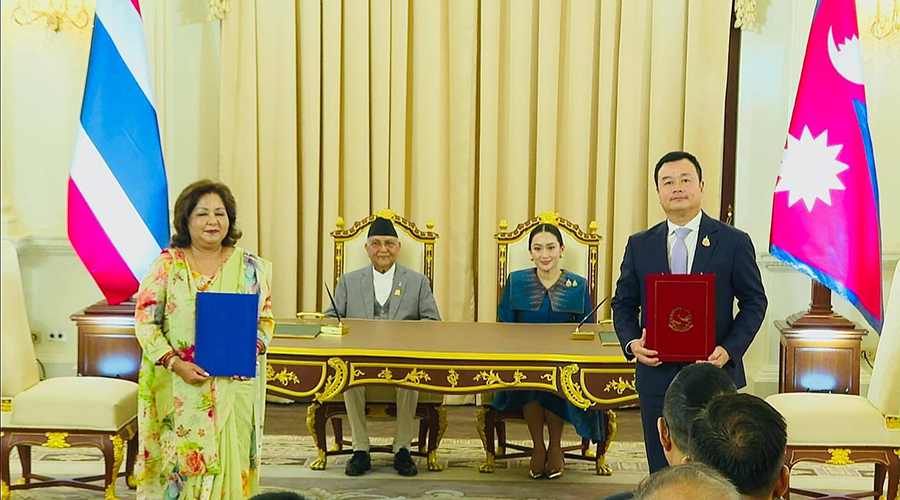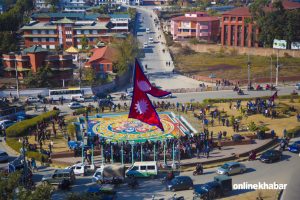
“You speak English just like Nepali.”
I encountered this response from one of my friends while I was doing my Bachelor’s. This statement did not surprise me as I had known well about how much the mother tongue plays a significant role in determining our identity.
During my schooling, our teachers used to persuade and appreciate if we spoke English in our original accent. Many Nepali students studying abroad face problems because of their accents. This also subjects them to being victims of racism.
When it comes to speaking foreign languages with a Nepali accent, is it really necessary to be a horse of a different colour? I do not think it is worth the effort!
We need to understand what matters most. Ability to speak and understand any language or the fluency and accent? Should we brand someone as stupid and wild simply because they are unable to perform a particular task? Consider the scenario of a foreigner attempting to speak Nepali with their own accent. It is common for us to find amusement and make light of their inability to mimic our accent. Indeed, we often do.
Not only that, if we ever go to their country and become unable to speak in their accent, maybe they will not understand what we say. Language differs from place to place and country to country, and accent plays an important role in understanding the meaning of the word.
Thus, we must not be angry if told to correct our accent, because the same word may have different meanings when spoken in varying accents.
The differences in accent and identity

Let us take an example to clear our prejudice, the word “affect” differs in meaning when spoken in different accents- when pronounced as “/əˈfɛkt/” it means “to affect on” but gives the meaning “mood, or emotional state” when pronounced as “/ˈæfɛkt/”. So, if someone speaks in their accent, it would be hard to understand which meaning he is referring to.
Let us positively view this concept, what if Nepali students are required to speak a foreign language in their original accent? Does it become an act to clear their native accent, or to correct the foreign accent of speaking?
There is a saying, “While in Rome, do as Romans do.” So, it does not surprise me universities give language classes to foreign students. People take their language and culture as a serious matter because it determines their identity.
So when we speak their language in the wrong way, it might hurt their sentiments. It would be like making fun of their language since we have been accepting language as the key to one’s identity.
Different elements define one’s identity and language is one of them. Language and accent play a dominant factor in analysing one’s identity even in the context of Nepal. Accent determines whether you are from East Nepal, West or Kathmandu Valley.
There are some possibilities when caste, position or other things may matter, but the main factor in judging someone is based on the dialect they speak. If you meet someone and speak in your tone and language, and if that person belongs to the same part, they will be close to you in minutes. However, it becomes hard for them to trust you if you are from another part.
Not only in the context of Nepal, but it is the same all around the globe. If someone speaks in a tone like a Muslim speaks in a foreign country, they would be judged quickly and people be alert in their presence.
I once travelled to North East India and I heard people speaking Nepali. Though they were Indians, I felt like they were close to me, I felt they were my neighbours. It happens to us all.
The language dilemma

We are prejudiced with the concept that language determines someone’s identity, and somewhat it does.
For example, if you meet a person who speaks in your tongue, you will certainly ask if that person is from your place. I too have encountered such situations a lot. They would not ask what your identity is, but make conclusions themselves, and say “So, you are from this part of the country” after listening to your speaking. Due to their accent while speaking Nepali most of the people from the Tarai region face prejudice and locals from the Valley would call them names such as Madhesi, Indian or Bhaiya.
If language never determined identity how would we be called Nepali, American, Indian, or so? How uniqueness in differences would be created? Different ethnic groups in Nepal fought to preserve their language because they believed it determined their identity. One identifies Chaudhary, Limbu, Rai, and so on, not solely based on their physical appearance but also based on the language they speak.
Even the government of Nepal have initiated different programmes to preserve the language of very ethnic communities. Different countries like Japan, China, and Korea have made strict laws to preserve their language because it was brought into existence with hard toil and sweat. Some countries even went to war to preserve their language.
Even in quizzes, you are asked, “How many languages are spoken in Nepal?” As language has a direct connection with one’s culture and history, one may not deny that language determines identity.
After the fall of physical colonisation, countries started making colonies with the help of their language. The free and compulsory language classes countries give might seem to change foreigners’ accents and in the long run, their identity.
One might believe this is to colonise their mother tongue. Would it be bad if one began to speak more than one language in their original accents?
Well, since language plays an important role in conveying one’s identity, it may not destroy their tongue completely but might distort it more or less. We are afraid of our “tongue” being pulled out, but that may not be fully true.
Yes, one is judged by the language and accent they speak, but this is not the only criteria to determine identity. And what if our natural accent never returns?
There will always be this dilemma. At last, it is up to us, how we take the idea of language. It is very important to protect and preserve one’s language, and at the same time, one must respect others too.























